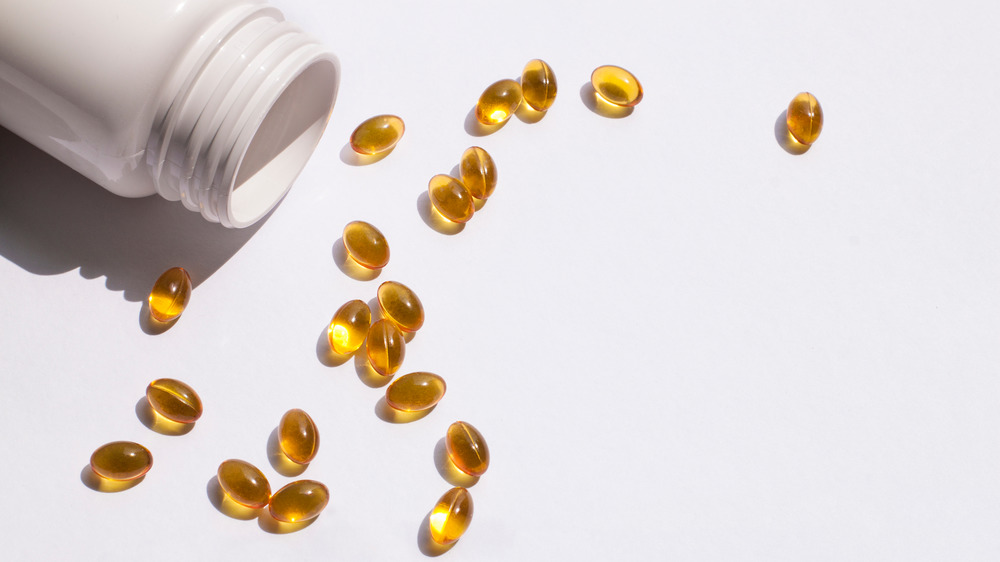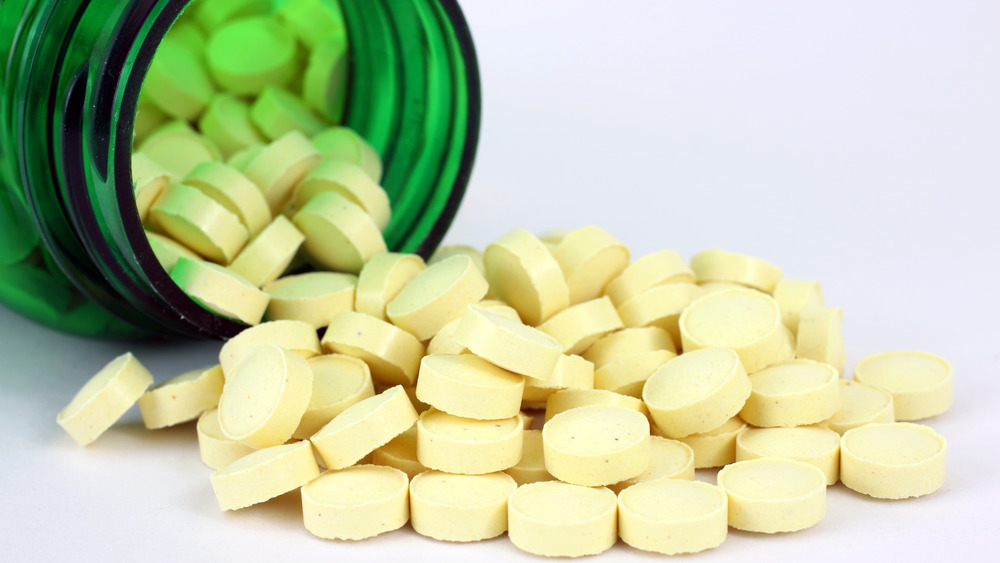This Is What Folic Acid Supplements Do To Your Body
Folic acid supplements are generally something we associate with pregnancy, but lately they've been gaining prominence as a possible assist for hair growth. As Web MD explains, both folate and folic acid are B vitamins. Folic acid is actually the synthetic form of folate, which occurs naturally in food. Meanwhile, folic acid is added to foods, including cereals, flour, breads, and pasta. It's also used for preventing and treating low levels of folate in the blood.
Folic acid is often taken during pregnancy to prevent miscarriage and birth defects including spina bifida. However, folic acid is also used to treat depression, stroke, and memory loss in elderly people. Naturally, because women take folic acid while pregnant, it's unsurprising to learn it's imperative in the proper development of the body, assisting in various functions as well as in the production of DNA. This is what taking folic acid will do to your body.
Folic acid could have wondrous effects on your hair
As Byrdie reports, folic acid is connected to hair growth because it's instrumental in the creation of red blood cells, which as certified trichologist William Gaunitz explained, "is needed to transfer nutrients throughout the body, as well as provide oxygen and minerals to rapidly dividing cells, such as hair."
Taking folic acid could also prevent premature graying by keeping the production of red blood cells normal and stable, as well as hair loss, because without enough folic acid, "the body will prioritize sending those critical nutrients to more vital organs," Gaunitz continued.
Folic acid can even thicken hair, as a deficiency is also linked to thinning hair. It can also make it shinier, as stable levels of folic acid in the body are associated with well-distributed nutrients throughout our cells. However, board-certified dermatologist Dr. Joshua Zeichner is quick to note there's no definitive data proving the correlation between folic acid and hair growth. He generally cautions against taking supplements if you're not deficient.
These supplements have other major health benefits
Healthline advises there are other major health benefits to taking folic acid supplements, including promotion of brain function, particularly in those suffering from Alzheimer's disease. They can also reduce depressive symptoms and even the risk factors of heart disease. Likewise, diabetes, fertility, inflammation, and even kidney disease are all impacted by taking folic acid supplements, according to research. Adults require around 400 mcg DFE of folate per day to replenish our stores, which can be acquired through folic acid supplements.
As Byrdie notes, those dealing with low levels of vitamin B may suffer from fatigue, headaches, and even pigmentation changes in their hair and fingernails. However, it's worth noting that if you already have enough folic acid in your blood, taking more could cause headaches, rashes, nausea, and skin reactions. Always talk to your doctor before taking supplements, in case you're actually missing something else instead.


